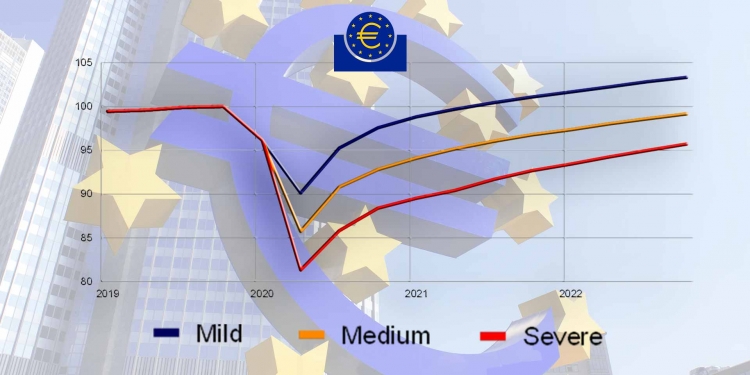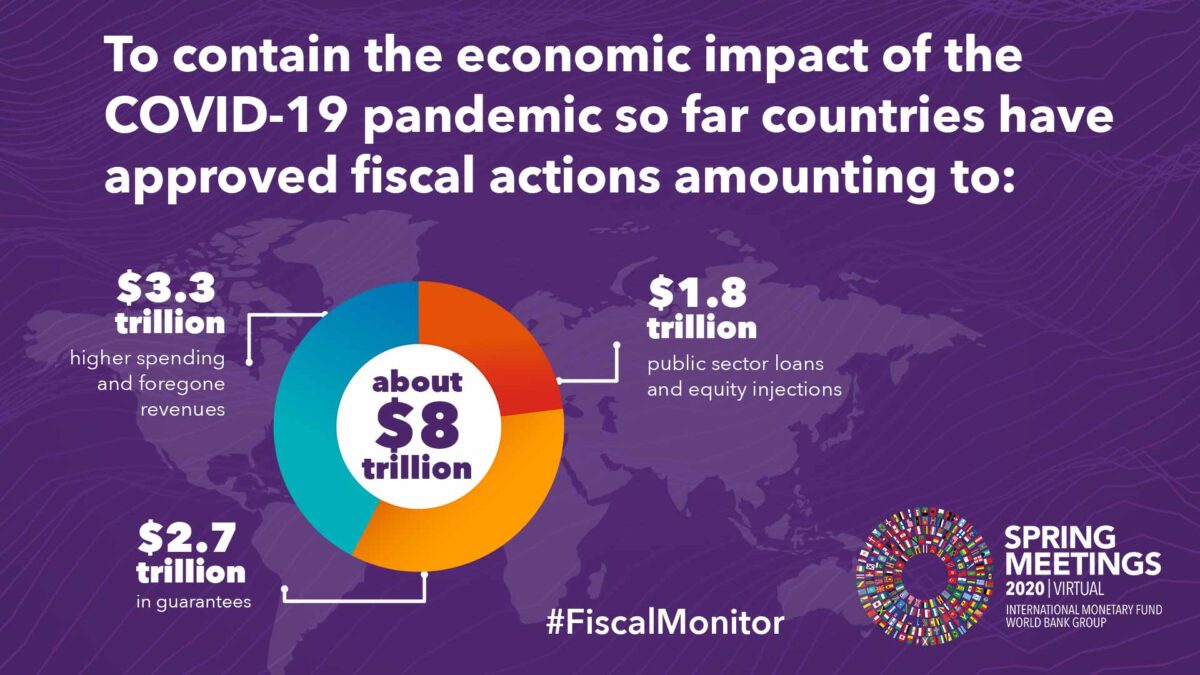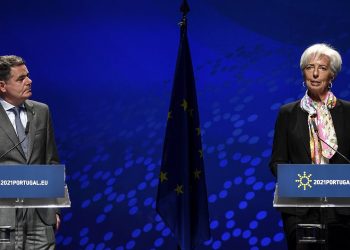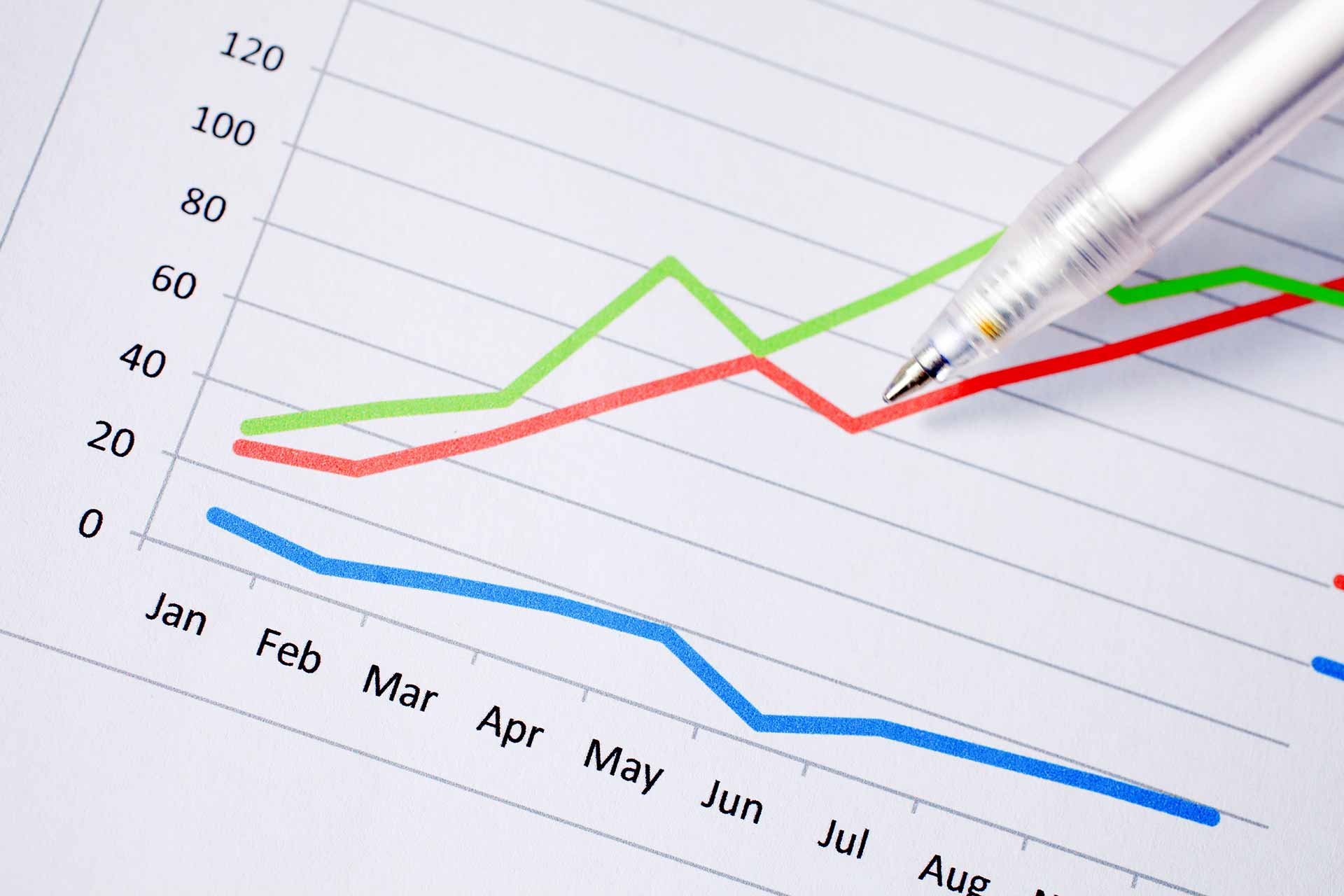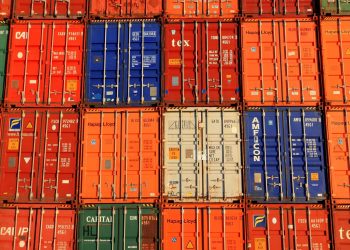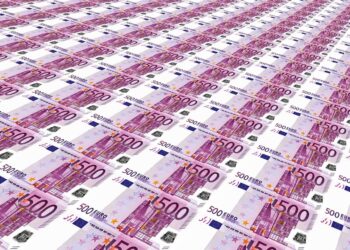The outbreak of the COVID-19 pandemic has dramatically affected global economic activity since early 2020. The rapid spread of the novel coronavirus (COVID-19) has required drastic measures to be taken, ranging from social distancing and the banning of public events to shutdowns, lockdowns and restrictions on numerous activities. The severity of these measures has begun to ease in some jurisdictions, as authorities are proceeding to gradually lift them and reopen certain sectors of the economies. Nevertheless, there could still be a prolonged period of social distancing and other containment measures in force for some time.
Can ECB do whatever it takes for Economy of Coronavirus Pandemic?
These containment measures have weighed on supply and – together with increased uncertainty and self-isolation by individuals due to the rapid spread of the disease – have also induced households and firms to retrench their spending, thereby reducing aggregate demand. Widespread closures of firms have triggered a marked deterioration in employment conditions, an increase in firms’ liquidity needs, and pronounced financial market disruptions. Despite the shortage of timely hard data, it is already clear that there has been a decline in economic activity of an unprecedented magnitude.
Euro area real GDP under the mild, medium and severe scenarios
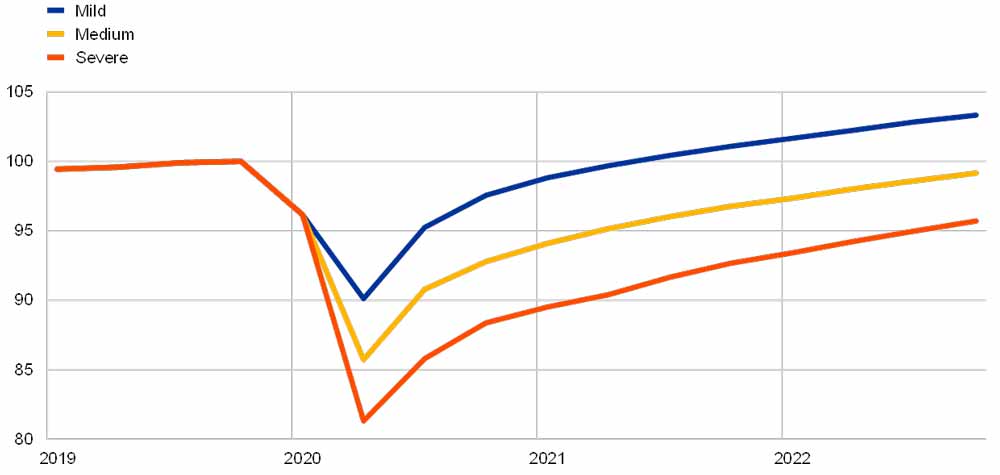
Alternative scenarios for the impact of the COVID-19 pandemic on economic activity in the euro area
These illustrative scenarios abstract from a number of other relevant factors that would also influence the magnitude of the recession in the euro area. The scenarios are built on the assumed containment by economic policy measures of prospective negative real-financial feedback loops. In addition, they do not include other non-linear amplification mechanisms due to extreme events, such as severe losses to household income and persistently high unemployment as a result of an increase in bankruptcy rates in the corporate sector.
Furthermore, these scenarios have been prepared under the usual assumption applied in ECB and Eurosystem staff macroeconomic projections for monetary policy, which is to take the same path for interest rates already reflected in market developments under all three alternative scenarios. Finally, the three scenarios take into account the fiscal measures that have recently been announced by euro area countries. Under the severe scenario, the prospective fiscal responses have been scaled up to better reflect the expected stronger economic severity of lockdown measures.
Given the unprecedented uncertainty surrounding the developments and economic impact of the COVID-19 pandemic, the assessments underlying these illustrative scenarios need to be continuously updated. The results of the analysis presented in this box crucially depend on the underlying assumptions. These include the (direct and indirect) effects of lockdown and other containment measures on global and domestic supply and demand forces, as well as the effectiveness of policy responses worldwide in containing the spread of the virus and in supporting economic activity. Ultimately, rapid and decisive containment and economic policy measures – besides an effective medical solution – will be crucial to ensuring a robust recovery of economic activity in the euro area. While this box focuses on the impact of the COVID-19 pandemic on economic activity in the euro area, the implications for consumer price inflation depend on the balance between demand and supply factors and, as mentioned, this will be assessed in the forthcoming June 2020 Eurosystem staff macroeconomic projections.
The IMF‘s Fiscal Economy Monitor, April 2020
COVID19 is a global crisis like no other that puts government spending on things like health care and employment, along with tax policy, at the heart of saving lives and the economic systems upon which people depend to survive. How can governments use fiscal policy to contain the damage from the pandemic?
Policies to Support People Economy during the COVID-19 Pandemic
A key priority is to fully accommodate spending on health and emergency services. Global coordination is for a universally low-cost vaccine and to support countries with limited health capacity. Large, temporary and targeted support is urgently needed for affected workers and firms until the emergency abates. As the shutdowns end, broad-based, coordinated fiscal stimulus—where financing conditions permit—will become more effective in fostering the recovery.
Governments should do whatever it takes but make sure to keep the receipts.
Vítor Gaspar / IMF – Portuguese economist
The high uncertainty surrounding the economic impact of the COVID-19 pandemic warrants an analysis based on alternative scenarios. There are high uncertainties surrounding the developments of the pandemic, the need for and effectiveness of containment measures, and the possible emergence of medical treatments and solutions.
These uncertainties can be illustrated through a scenario analysis, based on broad narratives for the aforementioned factors and their economic impact. It should be noted that these are illustrative scenarios compiled by ECB staff and, as such, they should not be seen as an indication of the forthcoming June 2020 Eurosystem staff macroeconomic projections for the euro area and thus they do not pre-empt in any way that projection exercise. Moreover, this box focuses only on economic activity, while the forthcoming June 2020 Eurosystem staff macroeconomic projections will be a fully-fledged projection exercise, including a detailed assessment of the inflation outlook.
Economic Loss is strongest for Services
Containment measures during the lockdown periods have a diverse impact across economic sectors in the euro area. The collapse in activity is initially the strongest for services, particularly those related to travel and recreational activities. This has already been indicated by some of the available survey evidence. However, the lockdown measures and the ensuing supply bottlenecks reduce production dramatically, also across large segments of the industry. Overall, the containment measures are assumed to cause a relatively larger loss of value added in retail trade, transport, accommodation and food service activities compared to manufacturing, construction and other sectors. The sectoral breakdown is indicative and based on anecdotal evidence and available survey evidence. It helped derive economy-wide estimates for the likely economic losses, which are broadly in line with available estimates from other institutions.
The total initial economic loss implied during the lockdown is estimated to amount to around 30% – depending on the country – of value added relative to the normal level of activity. On account of agents’ responses aimed at minimising economic disruptions, the total initial economic losses are assumed to decline in the course of the second quarter of 2020. Under the assumptions used for these illustrative scenarios, the marginal impact of an additional month of lockdown measures on the annual GDP level is initially, approximately, between 2 and 2½ percent.

